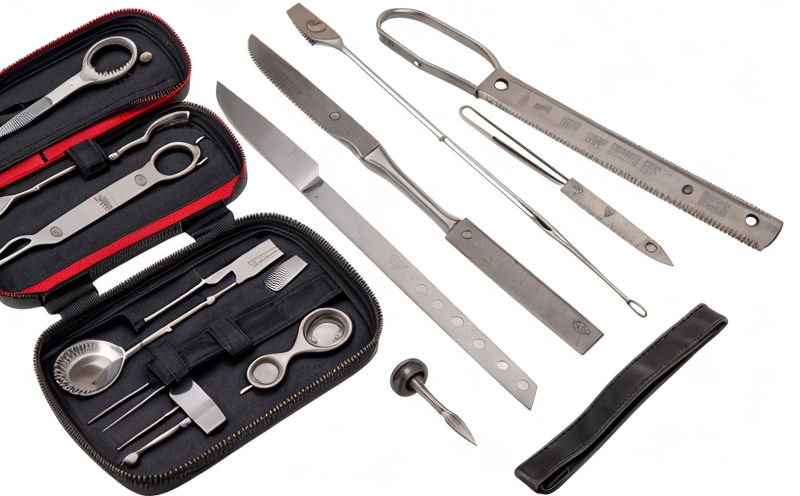Residual Carbohydrate Testing on Surgical Instruments
In the medical device sector, particularly within surgical instruments and tools, ensuring absolute sterility is paramount. Residual carbohydrate testing plays a critical role in this context as it helps detect any traces of carbohydrates that may have been introduced during manufacturing processes. These residues could potentially serve as substrates for microbial growth, thereby compromising the integrity and safety of the device.
Carbohydrate residues can be inadvertently retained on surgical instruments due to incomplete cleaning or improper processing steps. This issue is especially pertinent in high-risk environments where even minimal contamination poses significant health risks. Therefore, implementing robust residual carbohydrate testing protocols ensures that these devices meet stringent quality and safety standards before they are used in medical procedures.
The testing process typically involves extracting samples from the surface of surgical instruments using appropriate techniques followed by analysis via specialized instrumentation capable of detecting minute amounts of carbohydrates. The results provide valuable insights into whether there has been any contamination during production, allowing manufacturers to address potential issues promptly.
International standards such as ISO 17640-2 specify methodologies for performing residual carbohydrate testing on medical devices. Compliance with these guidelines ensures consistency across different laboratories and enhances trust among stakeholders involved in the supply chain.
To summarize, residual carbohydrate testing is an essential step in ensuring that surgical instruments are free from contaminants which could otherwise lead to adverse patient outcomes. By adhering strictly to established protocols and leveraging advanced analytical tools, healthcare providers can maintain high levels of reliability and safety when utilizing these crucial medical devices.
Why It Matters
The importance of residual carbohydrate testing cannot be overstated, especially considering its impact on patient safety and overall surgical outcomes. Even traces of carbohydrates can create ideal conditions for bacterial growth, increasing the risk of infections post-surgery.
From a broader perspective, adherence to this type of testing contributes significantly towards maintaining industry standards and regulatory compliance requirements. Regulatory bodies like the FDA or EU have stringent guidelines regarding sterilization methods used in manufacturing medical devices. Failure to meet these criteria could result not only in product recalls but also legal consequences for manufacturers.
Moreover, incorporating residual carbohydrate testing into quality control processes helps build consumer confidence by demonstrating a commitment to producing safe and effective products. This transparency fosters trust between healthcare providers who rely on these instruments and the general public whom they serve.
Quality and Reliability Assurance
Implementing rigorous quality assurance measures during manufacturing is crucial for ensuring product reliability. One key aspect of this process involves conducting thorough residual carbohydrate tests on surgical instruments to confirm their suitability for use in sterile environments.
During the manufacturing cycle, various stages involve potential sources where carbohydrates might adhere to the surface of surgical instruments. These include rinsing procedures, packaging materials, and handling practices within factories. By systematically applying residual carbohydrate testing at these critical points, manufacturers can identify any areas needing improvement early on in the production line.
The results from such tests are then utilized to refine existing processes or implement new protocols aimed specifically at eliminating carbohydrate residues. This continuous optimization loop helps maintain consistent quality levels across all units produced by a company.
Use Cases and Application Examples
- Pre-Surgical Testing: Conducting residual carbohydrate tests prior to sterilization ensures that instruments do not harbor any contaminants capable of causing infections once inside the operating room.
- Post-Maintenance Checks: After undergoing maintenance or repair, surgical tools must undergo testing to ensure they remain free from carbohydrates and other residues.
- New Product Introductions: For newly designed instruments, extensive residual carbohydrate testing serves as part of the validation process ensuring new products meet required standards before entering market.





